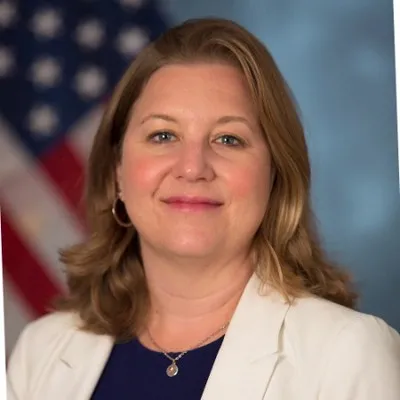Have you ever wondered how you can become a U.S. attaché, serving your country while working overseas? For U.S. Customs and Border Protection (CBP) Attaché Amy Cloud, becoming an International Relations Specialist (IRS) paved the way.

Cloud gained valuable experience as an IRS, leading to further exciting opportunities such as helping create the first border police in Costa Rica. She also visited every Central American country more than once, sometimes with high level leadership, speaking in front of private sector groups, visiting ports, organizing a conference and meeting the president of Panama. In fact, as an IRS, Cloud traveled to all of Central America, Mexico, Colombia, Chile, Barbados and Belgium.
Growing up in North Carolina, Cloud was always interested in seeing the world. She went on to study International Relations at the College of William and Mary in Virginia and then taught middle school under the Teach For America program. From there, Cloud taught at an international school in Guatemala, affording her the opportunity to live abroad long term for the first time. She also developed the language skills that she would use in her future endeavors.
Next, Cloud returned stateside to pursue a master’s degree in International Relations at the Johns Hopkins University School of Advanced International Studies. Cloud also began an internship at the U.S. Department of Commerce, leading to a full-time contractor position with a CBP border security program after she completed her master’s degree. In 2008, Cloud became a federal employee and later worked in Mexico City before finally moving to Colombia where she currently serves as a CBP Attaché.
Cloud stresses the importance of being an IRS in Washington, D.C. “The connections that you make by being an IRS in D.C. – with embassies of different countries, the trade promotion arms of those embassies, international organizations such as the World Bank, International Monetary Fund and Inter-American Development Bank – those connections come back to help you out when you are working in an embassy. It makes me feel successful because I know where to go within D.C. when I need contacts and resources.”
Moreover, Cloud saw firsthand how everything fits into a larger picture. “You learn more in D.C. about the nuts and bolts of the international affairs arms of the U.S. government so when you’re sitting in an embassy you know what it takes to put something on … Another benefit of working in D.C. before working overseas is knowing better all of the parts of CBP. You learn the tricks of the trade, a lot of that tradecraft is best learned in D.C.”
Cloud’s time as an IRS equipped her with the tools to further her career and take advantage of exciting and unique opportunities around the world. On a day-to-day basis, IRSs are responsible for a portfolio of countries and also deal with coordinating on broader U.S.-based issues. So “if the new Ambassador to Gabon, for instance, wants to get briefed, the IRS would be tagged to do it or to write the talking points for someone else to deliver.”
As such, Cloud believes prospective IRSs should “want to learn and explore outside of their specialized area, as well as possess problem-solving skills to issues that they might not be knowledgeable about.” Language skills are also a plus, as are strong writing and speaking skills. Volunteering outside of work with migrant or cultural groups is also one way to learn about other cultures, which is applicable to the IRS job.
And to those interested and already working at CBP, Cloud suggests volunteering for temporary detail assignments and exploring your office’s international aspects. Every CBP official touches something international – whether National Targeting Center work with other countries or inspecting cargo, a passport or a car from another country – it’s simply a matter of figuring out how to get further involved.
Cloud continues to enjoy her time in the Office of International Affairs. “Because of the diversity of CBP’s mission, there’s never a dull day. I like working in this niche because there aren’t many others in an Embassy who work on customs, immigration, and border security issues internationally. It’s really interesting to be able to sit in an interagency discussion and say, ‘well, have you thought about this [border-related aspect]?’ It’s always exciting to bring a new perspective to the table.”

